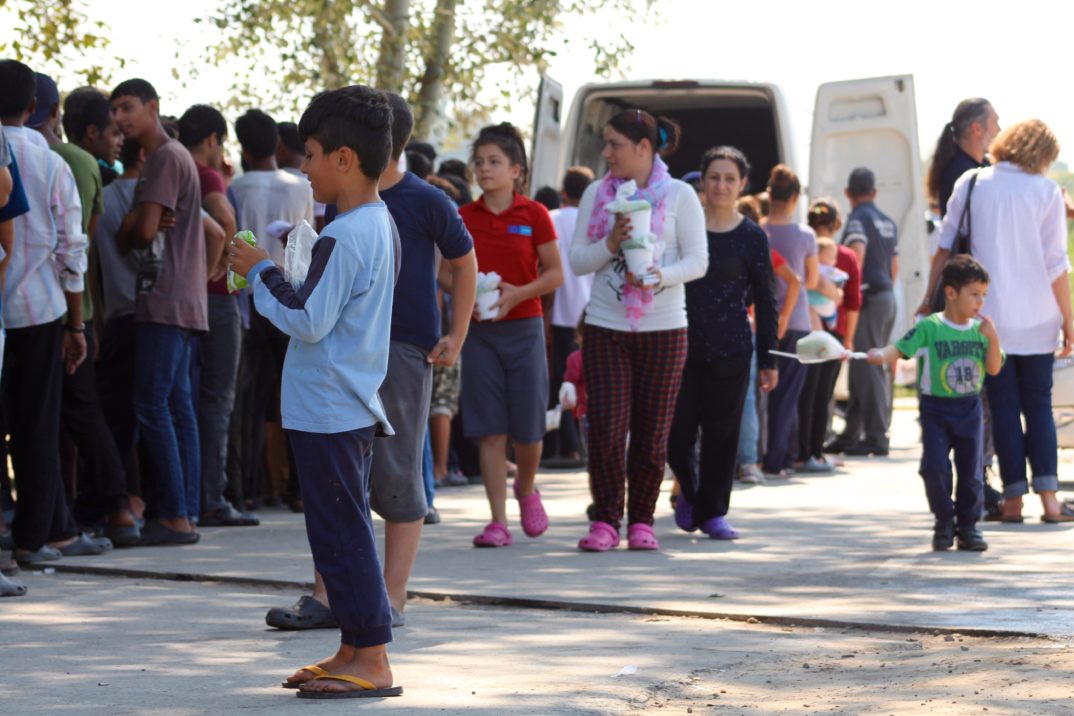The Moral Complexities of Helping Refugees
Since May 2011, around 5.1 million people have fled Syria and the Assad regime. Additionally, another 6.1 million people reside as internally displaced peoples (IDPs) within Syria. Because of this, many of the surrounding countries have fronted many of the refugees, including 3 million in Turkey, 1 million in Lebanon, and another 660,000 in Jordan. What are the moral complexities surrounding these nations and what responsibility does the rest of the international community have in this crisis?
Certain ethical questions surround moral responsibility and assistance for refugees, including their resettlement. Typically, these questions focus on the primary responsibility of providing any form of aid, preventing the discussion on how to ethically resettle refugees. Assuming there is a moral obligation to provide refuge or aid to those escaping rogue regimes, how can we ethically deliver support? What is deemed ethical in U.S. responses to refugee crises and the plight of IDPs? An insight into the Syrian refugee crisis serves as an appropriate example of the complexity of these responses.
Various camps hone in on this topic. One includes the responsibility of neighboring nations to provide refuge and financial assistance, such as Lebanon’s and Jordan’s responses to the Syrian conflict. Another focuses on the need for more powerful nations, like the U.S., to provide refuge abroad and to support other host countries in delivering proper resettlement opportunities. Other responses include developing safe zones within Syria that protect IDPs in refugee camps.
Additionally, others focus on the legal norms surrounding refugee relocation, such as standards established through the United Nations High Commissioner for Refugees (UNHCR). These include allowing freedom of movement of refugees, standard treatment of refugees at the similar levels as other migrants, and access to employment and elementary education. Unfortunately, even these basic levels of support are commonly violated with no repercussions, including the current situation in Myanmar. Further so, these responsibilities do not extend to refugee camps. Any form of assistance to refugee camps is then considered a by-product of goodwill rather than a legal or moral responsibility, extended from the Refugee Convention.
So, what is a moral response to refugee crises? Many in Europe have taken steps to “house, educate, train, and integrate” refugees into the host country’s culture. Though they are seemingly ethical, evaluating the effectiveness of these programs also requires us to realize it’s shortfalls. For example, the role of cities in responding to the refugee crisis also requires prompt answers to employment opportunities and proper housing, balancing increasing population density through low cost housing in a scarce market. In addition, maintaining public order and providing inclusive environments remain looming problems for many cities. In these cases, because of the shifting political power of major cities, many countries have resorted to closing their borders, including many Balkan states. In addition, settling an influx of refugees can pose an economic problem for developing states. For example, Syrian refugees now consume about 5% of the Gross Domestic Product (GDP) of Jordan. This has affected living standards and access to public services for many Jordanians.
Included in a moral response to the refugee crises is an economic argument. Resettling a refugee in their home country is considered a fiscally responsible response to an influx of IDPs, with some refugees preferring to stay within their home country in hope of a return back home. But, this response requires that there is a safe zone for refugees to be resettled and an ensured quick response to the issue causing their fear of persecution (i.e. the rogue regime or oppressor). Without a proper safe zone, a fiscally responsible view becomes an issue. Refugees then confront an ontological insecurity, always fearing retaliation from the same oppressors they seek to flee.
Without this safeguard, a moral response may lie in financially supporting the bordering countries providing assistance. To do so requires that these countries are able to support the refugees in the ways outlined in the UNHCR, a larger issue for less developed countries. Without this ability, it seems that the most moral response is to expend costs to provide refuge for IDPs and other fleeing rogue regimes by setting up systems for them abroad.
This complex issue surrounding moral responses towards refugee crises does not come with any simple answer. As seen above, many of the responses towards the Syrian refugee crisis are subjected to widespread criticism curtailing the ability of one solution. It is clear, then, that there is not one certain, go-to answer. Many of the difficulties in providing a safe haven for refugees are dependent on the ability of the international community and bordering nations to economically and socially provide sustainable solutions. There must be a focus on cultural acceptance and policy reforms that can dynamically react to large influxes of refugees. Nevertheless, countries can no longer shut down borders out of fear, but must accelerate and allow the movements of refugees to areas that can provide them the opportunities and basic needs of all people. A global response to these crises is necessary, and no one country should bear the full cost of refugee relocation.





